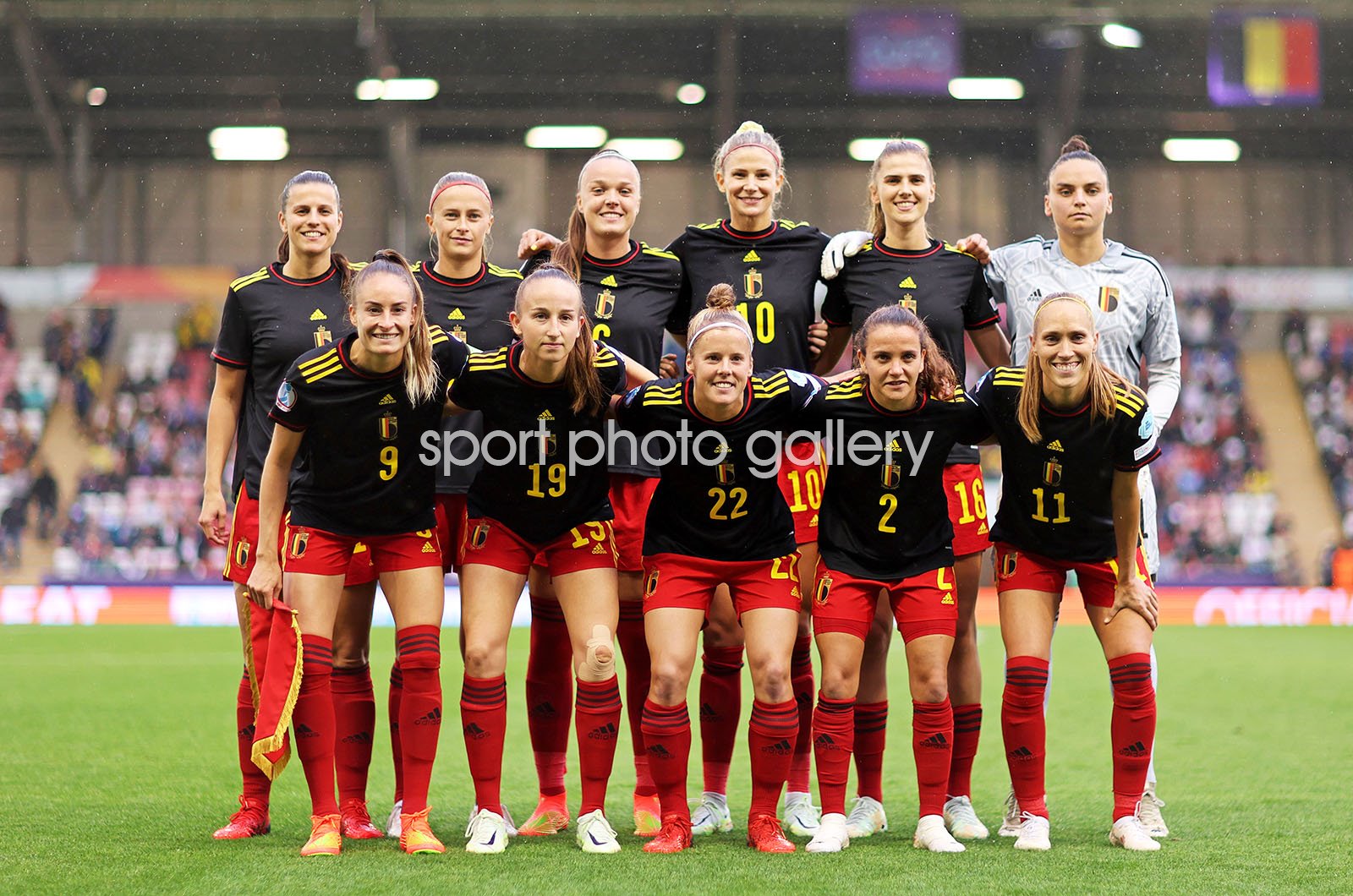“Women’s Football Progress in Belgium
Related Articles Women’s Football Progress in Belgium
Women’s Football Progress in Belgium

Women’s football has experienced substantial growth and recognition globally, and Belgium is no exception. Over the past few years, the country has witnessed a remarkable transformation in its women’s football landscape, marked by increased participation, improved infrastructure, enhanced media coverage, and growing support from fans and stakeholders. This article delves into the progress of women’s football in Belgium, highlighting the key milestones, challenges, and future prospects.
Historical Overview
Women’s football in Belgium has a rich history dating back to the early 20th century. However, it wasn’t until the 1970s that the sport began to gain significant traction. In 1971, the Royal Belgian Football Association (RBFA) officially recognized women’s football, paving the way for the establishment of organized leagues and competitions.
Despite these initial steps, women’s football in Belgium faced numerous challenges, including limited funding, inadequate facilities, and societal biases. The lack of resources and support hindered the development of talented players and the overall growth of the sport.
Recent Progress and Developments
In recent years, women’s football in Belgium has experienced a significant upswing, driven by a combination of factors:
-
Increased Participation: The number of registered female football players in Belgium has steadily increased over the past decade. This growth can be attributed to various initiatives aimed at promoting women’s football at the grassroots level, such as school programs, youth academies, and recreational leagues.
-
Improved Infrastructure: The RBFA and local clubs have invested in upgrading football facilities to meet the specific needs of female players. These improvements include better training grounds, locker rooms, and equipment, creating a more conducive environment for women’s football.
-
Enhanced Media Coverage: Women’s football in Belgium has gained increased media attention, with more matches being broadcast on television and streamed online. Newspapers and sports websites have also started to dedicate more coverage to women’s football, raising awareness and attracting new fans.
-
Growing Fan Support: The popularity of women’s football in Belgium has grown significantly, with more fans attending matches and supporting their favorite teams. This increased fan base has created a more vibrant and exciting atmosphere around women’s football.
-
Professionalization of the Game: The Belgian Women’s Super League, the top tier of women’s football in Belgium, has become increasingly professionalized. Clubs are investing more in player salaries, coaching staff, and training facilities, attracting talented players from both Belgium and abroad.
Key Milestones
Several key milestones have marked the progress of women’s football in Belgium:
-
Qualification for Major Tournaments: The Belgian women’s national team, known as the Red Flames, has achieved significant success in recent years, qualifying for major tournaments such as the UEFA Women’s Euro and the FIFA Women’s World Cup. These appearances have raised the profile of women’s football in Belgium and inspired a new generation of players.
-
Hosting International Events: Belgium has successfully hosted several international women’s football events, including the UEFA Women’s Under-19 Championship in 2017. These events have provided valuable exposure for women’s football in Belgium and showcased the country’s ability to organize high-quality sporting events.
-
Individual Player Success: Several Belgian female football players have achieved individual success on the international stage, playing for top clubs in Europe and earning recognition as some of the best players in the world. Their achievements have served as role models for young girls in Belgium and inspired them to pursue their football dreams.
Challenges and Opportunities
Despite the progress made, women’s football in Belgium still faces several challenges:
-
Funding Disparities: Women’s football continues to receive less funding than men’s football, which limits the resources available for player development, coaching, and infrastructure.
-
Gender Stereotypes: Societal biases and gender stereotypes still exist, which can discourage girls from participating in football and limit the opportunities available to female players.
-
Lack of Professional Opportunities: While the Belgian Women’s Super League has become more professionalized, there are still limited professional opportunities for female players in Belgium. Many talented players are forced to seek opportunities abroad.
However, there are also several opportunities for further growth and development:
-
Increased Investment: Continued investment in women’s football is crucial to ensure its long-term sustainability. This investment should focus on player development, coaching education, infrastructure improvements, and marketing initiatives.
-
Promoting Gender Equality: Efforts to promote gender equality in football should be intensified. This includes challenging gender stereotypes, creating more opportunities for female coaches and administrators, and ensuring equal pay for female players.
-
Developing Grassroots Football: Investing in grassroots football is essential to ensure a steady pipeline of talented players. This includes providing more opportunities for girls to play football at a young age and developing high-quality coaching programs.
-
Leveraging Major Tournaments: Major tournaments such as the UEFA Women’s Euro and the FIFA Women’s World Cup can be used to raise the profile of women’s football in Belgium and inspire a new generation of players and fans.
The Role of the Royal Belgian Football Association (RBFA)
The RBFA plays a crucial role in the development of women’s football in Belgium. The organization is responsible for overseeing all aspects of the game, from grassroots development to the national team. The RBFA has implemented several initiatives to promote women’s football, including:
-
Investing in Grassroots Football: The RBFA has invested in grassroots football programs aimed at increasing participation among girls and young women. These programs include school programs, youth academies, and recreational leagues.
-
Developing Coaching Education: The RBFA has developed coaching education programs specifically for female coaches. These programs aim to provide female coaches with the skills and knowledge they need to succeed.
-
Promoting the Belgian Women’s Super League: The RBFA has actively promoted the Belgian Women’s Super League, working to increase media coverage and fan attendance.
-
Supporting the National Team: The RBFA provides significant support to the Belgian women’s national team, ensuring that they have the resources they need to compete at the highest level.
The Impact of Women’s Football on Society
Women’s football has a positive impact on society in several ways:
-
Empowering Women and Girls: Women’s football empowers women and girls by providing them with opportunities to develop their skills, build confidence, and achieve their goals.
-
Promoting Gender Equality: Women’s football challenges gender stereotypes and promotes gender equality by demonstrating that women can excel in sports.
-
Inspiring Future Generations: Women’s football inspires future generations of girls to pursue their dreams and break down barriers.
-
Promoting Health and Well-being: Women’s football promotes health and well-being by encouraging physical activity and providing a sense of community.
Future Prospects
The future of women’s football in Belgium looks bright. With continued investment, improved infrastructure, enhanced media coverage, and growing fan support, women’s football is poised for further growth and success.
The Belgian women’s national team has the potential to become a major force in European and world football. With a talented squad of players and a dedicated coaching staff, the Red Flames are capable of competing with the best teams in the world.
The Belgian Women’s Super League is also expected to continue to grow in popularity and professionalism. As clubs invest more in player salaries, coaching staff, and training facilities, the league will attract more talented players from both Belgium and abroad.
Conclusion
Women’s football in Belgium has made significant progress in recent years, driven by increased participation, improved infrastructure, enhanced media coverage, and growing fan support. While challenges remain, the future of women’s football in Belgium looks bright. With continued investment, a focus on gender equality, and a commitment to grassroots development, women’s football in Belgium is poised for further growth and success. The sport not only empowers women and girls but also contributes to promoting gender equality, inspiring future generations, and fostering health and well-being within society. As the Red Flames continue to shine on the international stage and the Belgian Women’s Super League gains prominence, women’s football in Belgium is set to leave a lasting legacy.


